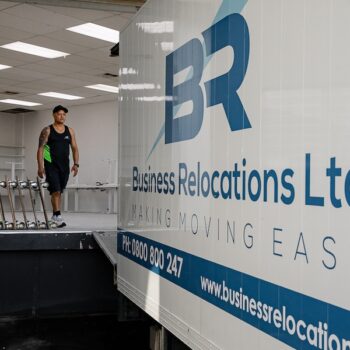SME confidence climbs as economic outlook turns positive, survey
For the first time in five years, optimism among New Zealand SMEs is leading economic sentiment, according to the 2025 MYOB Business Monitor released today.
The nationwide survey of more than 1,000 SME owners and operators reveals a notable uplift in confidence, with 46 percent expecting the economy to improve over the next 12 months – the highest level since 2016. This marks a turnaround from 2024, when only 37 percent were optimistic and 40 percent forecasted a downturn.
The survey, which consisted of responses from business owners, manager and directors (operators), was conducted from January 24 to March 3, 2025, well before US President Donald Trump’s reciprocal tariffs announcement on April 2.
The improvement in sentiment is underpinned by better business performance. Twenty-eight percent of SMEs reported revenue growth over the past year – up from 25 percent in 2024 – while 43 percent said revenue remained steady. Only 29 percent experienced a decline, compared to 33 percent the year before.
Some sectors are performing particularly well. The agribusiness sector leads the charge, with 41 percent of respondents reporting increased revenue, followed by transport and logistics (35 percent) and manufacturing and wholesale (32 percent).
Looking ahead, 35 percent of SMEs expect their revenue to increase over the coming year, nearly double the 18 percent who anticipate a decline.
MYOB Chief Executive Paul Robson says the results point to a resilient and forward-looking SME sector, eager to seize the opportunities that come with economic recovery.
“Demonstrating unquestionable resilience, business owners at the helm of New Zealand’s SMEs have done a remarkable job steering their organisations through an incredibly testing time,” says Robson.
“As the economy starts to show some signs of recovery, it’s encouraging to see more businesses reporting growth and likewise feeling more stable when it comes to their overall financial position.”
He adds that while the signs are promising, a focus on business fundamentals and innovation will be crucial to capitalising on improving conditions.
“Key to this though, will be a focus on business fundamentals – like cashflow, stock management and profitability – balanced with seizing opportunities to innovate their operations to improve productivity and boost sales,” Robson says.
Despite the uplift in sentiment, SMEs remain concerned about the cost of doing business. The top concerns are inflation (63 percent), consumer confidence and spending (46 percent), and rising utility costs (42 percent). One in five operators say they are “very concerned” about energy prices.
On average, SMEs reported a $1,600 monthly increase in overheads over the past year due to inflation. Compliance-related costs have also spiked, rising by over $1,100 annually per business.
As the Government sharpens its focus on economic growth, SMEs – which make up 97 percent of all enterprises in New Zealand – are clear on the policy changes they believe would help drive success.
Reducing compliance and red tape (45 percent) tops the Budget 2025 wishlist, followed closely by a cut to the company tax rate (44 percent) and greater investment in skills and training (29 percent).
Changes to tax policy are also seen as vital, with 54 percent supporting reduced ACC levies for small businesses, 41 percent backing a lower company tax rate, and 29 percent in favour of lifting the provisional tax threshold.
Robson says SMEs need targeted support to keep building on the current momentum.
“To help them realise those growth ambitions, we need an economy that is firing and an environment where Kiwi businesses can innovate, leverage a skilled workforce, and remain competitive without the burden and additional cost of unnecessary red tape,” he explains.
He also emphasises the long-term economic value of supporting SMEs.
“Given the scale of the SME segment and their vital role in the economy – both in their contribution to GDP and the employment they offer in the regions they call home – we hope these businesses receive the support they deserve in this year’s Budget.”
Related: Minister Chris Penk on growing New Zealand’s SME sector







